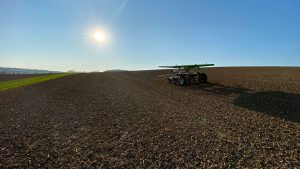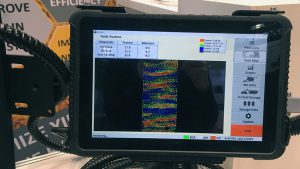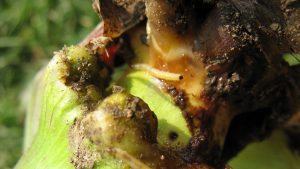Global accolades
GUELPH RESEARCHER WINS BORLAUG AWARD OF EXCELLENCE
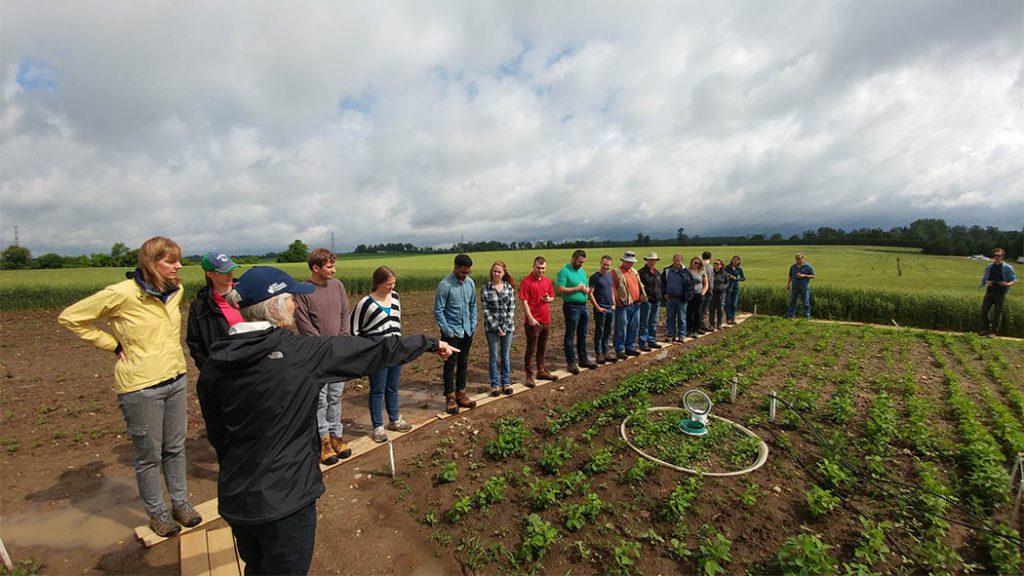
CANADIAN AGRICULTURE’S DRIVE to position itself at home and abroad as an environmentally responsible sector depends on its ability to clearly support sustainability claims with research, programs, and people recognized worldwide.
And when it comes to nutrient management, a University of Guelph environmental scientist professor, Dr. Claudia Wagner-Riddle, is a global leader with a new, high-profile accolade.
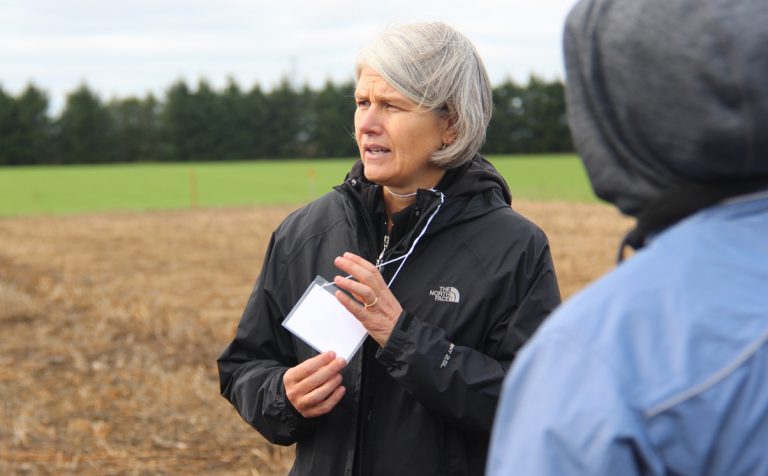
Wagner-Riddle, a faculty member at Guelph since 1994, is the recipient of this year’s Borlaug Award of Excellence in Crop Nutrition, from the International Fertilizer Association (IFA). IFA award winners are chosen from a field of researchers or extension workers whose efforts have led to significant crop nutrition advances.
The association bestows the award in the name of global sustainability icon and 1970 Nobel Peace Prize winner Norman Borlaug. He was renowned for leading the Green Revolution, which included helping farmers in developing nations use nitrogen fertilizer for crop improvement.
Wagner-Riddle points to the timeliness of receiving an award in Borlaug’s name.
“Interest is intensifying in the environment,” she says. “There’s a general sense that agriculture provides ecosystem services to society, and that it can be part of the solution for mitigating climate change by contributing to carbon uptake and reducing greenhouse emissions. That means managing nitrogen fertilizer the best we can, and the fertilizer industry is answering the call.”
In announcing the award, the IFA lauded Wagner-Riddle for continuing to advance 4R Nutrient Stewardship, incorporating the right fertilizer source at the right rate, at the right time, and in the right place. This initiative provides a framework to achieve cropping system goals such as increased production, increased farmer profitability, enhanced environmental protection, and improved sustainability.
Garth Whyte, president and CEO at Fertilizer Canada, commended Wagner-Riddle for being instrumental in furthering 4R Nutrient Stewardship research in Canada, as part of the 4R Research Network. He noted how her work has informed Canada’s national inventory of greenhouse gas emissions, and the 4R Climate-Smart Protocol. Her research is featured in “Key Findings of the Canadian 4R Research Network,” published by Fertilizer Canada.
“Through her novel research, [Wagner-Riddle] has gained an esteemed reputation as a soil scientist who is combining innovative technical methods with multidisciplinary collaboration,” he says.
Wagner-Riddle’s research is focused on comparing various combinations of nutrient source, rate, timing, and placement of nitrogen fertilizer on Ontario cropland. Her findings have helped quantify nitrous oxide (N2O) emission reductions associated with urease and nitrification inhibitors.
These findings have practical applications for farmers and provide important information for legislators and other decision makers working towards research-based environmental policy. They also give Canada’s agriculture sector another opportunity to point to its commitment to sustainability.
“Buyers want commodities and products to be coming from sources that address climate change,” she says. This is expected to become an increasing imperative with the U.S., our biggest trading partner, when the Democratic government under President-elect Joe Biden and vice-president-elect Kamala Harris takes office.
Much of Wagner-Riddle’s research is conducted at two sites at the Elora Research Station that comprise the University of Guelph’s Soil Health Interpretive Centre. The centre has wide support – it is funded by Grain Farmers of Ontario, the Natural Sciences and Engineering Research Council, and the Ontario Ministry of Agriculture, Food and Rural Affairs, and operated by the University’s School of Environmental Sciences in partnership with the Ontario Soil and Crop Improvement Association.
Key to the centre is a $2 million lysimeter infrastructure project (lysimeters measure the water in the pore spaces of soils). It involves 18 open-air, one-square-metre barrel-like soil units (called “monoliths”), sunk 1.5 metres deep into the ground, connected through dozens of highly sensitive sensors. They can detect differences as small as 10 grams in the three tonnes of soil in each monolith.
The sensors allow water and nutrient movement to be minutely tracked at various depths, under real conditions, and the self-contained units allow researchers to monitor the physical, chemical, and biological make-up of the soil.
“A lot of our work is related to emissions through the non-growing season and what happens after harvest, which is what these lysimeters help us understand,” she says. “We want to relate fertilizer use with cover crop practices, to see what happens with residual nitrogen so we can prevent leaching. We’re seeing significant reduction through cover crop use, up to 70 per cent reduction in lost nitrogen.”
Wagner-Riddle was recently appointed the North American Centre director for the International Nitrogen Initiative. It aims to optimize nitrogen’s beneficial role in sustainable food production and minimize its adverse effects on human health and the environment resulting from food and energy production.
In her role as North American director, she will report on strategies and developments across the continent, providing an internationally coordinated approach to achieve the program’s aims.
Wagner-Riddle is only the second Canadian researcher to be recognized by IFA for her work. She joins Cynthia Grant, a recently retired Agriculture and Agri-Food Canada crop scientist from Manitoba, who received the award in 1994. •
























